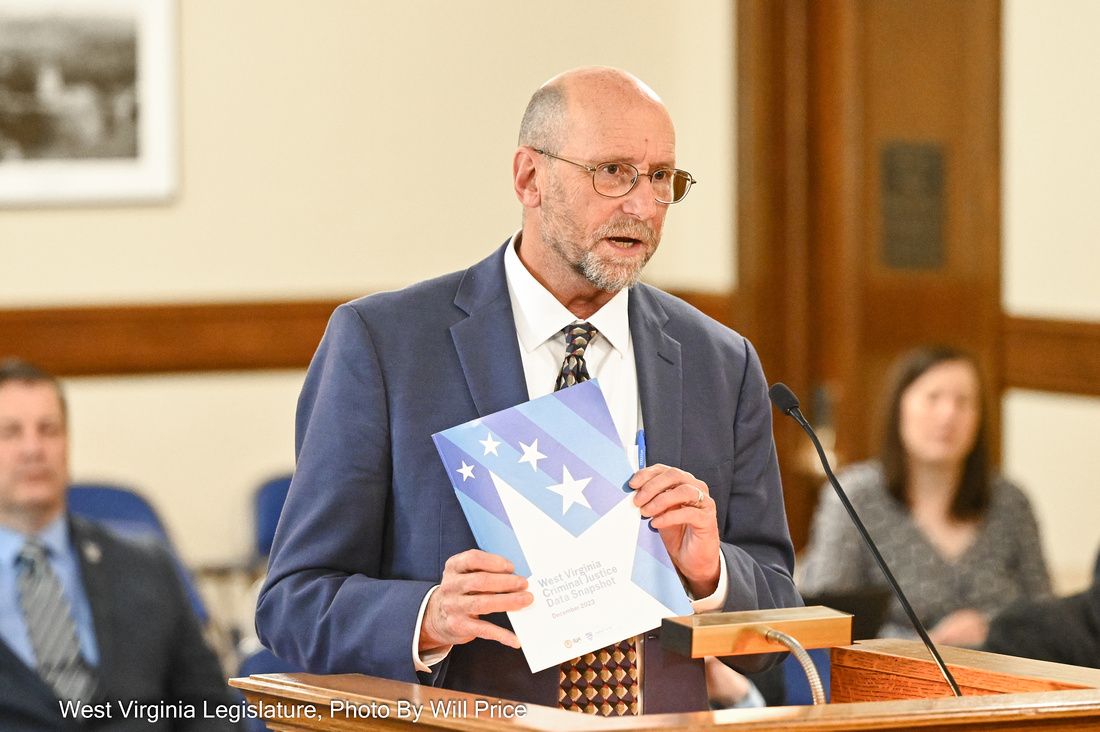As West Virginia’s strained jail system faces ongoing safety concerns, reinvestment and recruitment efforts aim to amend facility issues on a state level.
The Legislative Oversight Committee on Regional Jail and Correctional Facility Authority convened for a public meeting Monday at the State Capitol. Their meeting centered around changes to staffing and oversight in the state’s jail facilities.
West Virginia’s jail system has come under national scrutiny for the alleged mistreatment of people who are incarcerated, including neglect, water deprivation and the deaths of tens of individuals in less than five years.
Last year, eight correctional officers at Southern Regional Jail in Beaver were charged over an assault that led to the death of a man who was incarcerated in the facility.
Carl Reynolds, senior legal and policy advisor at the Council of State Governments (CSG) Justice Center, spoke to lawmakers about “justice reinvestment” — the reallocation of funds from jails to other areas of the criminal justice system.
By providing investments “further upstream,” like in law enforcement, victim services and parole supervision, Reynolds said the state’s jail system can reduce expenses associated with incarceration.
The CSG Justice Center uses federal funds to work with officials on the state level and analyze data pertaining to state criminal justice systems. They then advise state leadership on potential changes to make.
Photo Credit: Will Price/WV Legislative Photography
Reynolds said representatives from his organization have met with leaders from all three branches of government in West Virginia and have received approval to pursue this work in the Mountain State.
Justice reinvestment is an idea that West Virginia has recently begun to embrace.
Gov. Jim Justice awarded more than $2.6 million in grant funds to treatment supervision programs across the state in 2023, followed by an additional $2.4 million in 2024. These programs offer substance abuse interventions to some individuals convicted of felony drug offenses.
Reynolds said that his organization is currently collecting information and ideas from state officials on how to approach reinvestment efforts in West Virginia.
“This is an open-minded, open-ended process where we want to find out what’s important to you all and to the other stakeholders in the system,” he said.
In the meantime, recruitment efforts in West Virginia jails could also address issues in the West Virginia corrections system, according to Pat Mirandy, chief of staff for the West Virginia Division of Corrections and Rehabilitation (DCR).
Mirandy said Monday that recruitment efforts have been “nothing more than miraculous over the past few months.”
Since Jan. 1, Mirandy said the DCR has hired 291 correctional officers and 49 additional, non-officer personnel members. Also since Jan. 1, 162 individuals have completed DCR corrections training, he said.
Photo Credit: Will Price/WV Legislative Photography
Union representatives have long said that understaffing in the state’s jail system has created additional safety risks for workers, which also extend to individuals who are incarcerated.
In 2022, Justice issued a state of emergency proclamation over the staffing issues, which allowed members of the West Virginia National Guard to fill in vacancies in the jail system.
But the ongoing recruiting efforts could mean National Guard members will no longer be needed in the state’s jail system, Mirandy said.
At the beginning of the year, Mirandy said 413 National Guard members were working for the DCR. Now, that number has fallen to approximately 80.
During the meeting, Del. Bryan Ward, R-Hardy, said these staffing improvements marked “a lot to be proud of” for the agency.
Mirandy said that by May the DCR anticipates only five guard members will remain with the agency, staying on to complete “paperwork that needed to be done to close out the soldiers that we had in our facilities.”
“Because of the success of our recruiting efforts, we’ve been able to draw down the National Guard’s footprint in our agency,” he said. “Our plan to eventually achieve no guardsmen in our facilities will be a reality soon.”
